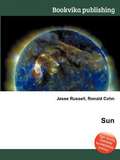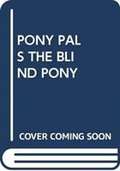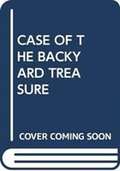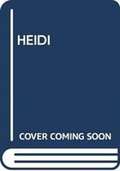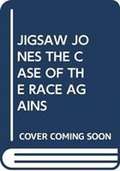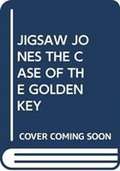- Table View
- List View
خزانة الأدب وغاية الأرب
by تقي الدين أبي بكر علي بن عبد الله الحموي الأزراريالكتاب يتناول تاريخ الأدب في عصر المماليك ويعد لذلك من الكتب التي لا غنى عنها للباحثين في الأدب إذ ضمنه كثيراً من نماذج شعراء عصره وقدم تصويراً دقيقاً للحياة الأدبية آنذاك ولعل هذا الكتاب يعد من أبرز ما ألف .
Holy Quran in Arabic: Isländernes Lovbog I Fristatens Tid. Text I, Volume 1...
by تنزيلHoly Quran complete in Arabic Language
المعلومات والمال
by توم ليدون و جون إف. واسيكالفصل الأول : فشل صناديق الاستثمار ونشأة الصناديق المتداولة في البورصة الفصل الثاني : فن التأشير باستخدام خطة كيف تجني المال من وراء المعلومات الفصل الثالث : الاستثمار في الأسهم المحلية: الصناديق المتداولة في البورصات الخاصة بالأسهم الأميركية الفصل الرابع : الاستثمار على الصعيد العالمي: الصناديق المتداولة في بورصات الأسهم الأجنبية الفصل الخامس : التقسيم والمغامرة: قطاعات الصناديق المتداولة في البورصة الفصل السادس : الذهب والفضة والبترول: الصناديق المتداولة في البورصة الخاصة بالسلع الفصل السابع : الاستثمار في ما لا يستحق: الصناديق المتداولة في البورصات الخاصة بالعملات الفصل الثامن : الحصول على قطع من سوق السندات: الصناديق المتداولة في البورصة الخاصة بالدخل الثابت الفصل التاسع : التقاعد: برنامج (e) 401 للتقاعد الفصل العاشر : التحوط لعملياتك: الصناديق المتداولة الدائنة والمكشوفة الفصل الحادي عشر : ماذا سيحدث مستقبلا مستقبل الصناديق المتداولة في البورصة الفصل الثاني عشر : محافظ الصناديق المتداولة في البورصة وفقا لفكر كيف تجني المال من وراء المعلومات
الفارسات الصغيرات - ماذا اصاب فرسي الصغيرة
by جاين بتانكورتاعتقدت بان أنها تحسن التصرف مع الخيول, حتى بدأت فرسها بروق تتصرف بشكل غريب. صارت الفرس تخالف أوامر فارستها الصغيرة, وتمتنع عن الأكل, كما أنها أسقطتها عن ظهرها. لذا راحت الفارسات الصغيرات يبحثن عن السبب. وعلى خلاف اعتقاد بان, كان هناك سبباً أكبر من مجرد استياء بروق منها, لكن هذا السبب استغرق الكثير من البحث المنظم للتوصل إليه. سيجد القراء متعة في متابعة مشكلة بروق والتوصل لنهاية سعيدة.
في حديقة الحيوانات
by جاين لانغفورد - جون بريستقفز ماجد من سرير ه وارتد ى ثيابه على الفور . فاليوم عيد ميلاده . لقد بلغ الثامنة من عمره . ركض إلى الطابق السفلي ودخل المطبخ . بادرته أمه قائلة : «عيد ميلاد سعيد يا ماجد . تناول إفطار ك بسرعة . قد تناول بابا إفطاره ويرغب بأن يبدأ نهاره باكرا كان الأب ينو ي أخذ ماجد واثنين من رفاقه في نزهة إلى حديقة الحيوان لمناسبة عيد ميلاده
في حديقة الحيوانات
by جاين لانغفورد - جون بريستقفز ماجد من سريره وارتد ى ثيابه على الفور . فاليوم عيد ميلاده . لقد بلغ الثامنة من عمره . ركض إلى الطابق السفلي ودخل المطبخ . بادرته أمه قائلة : «عيد ميلاد سعيد يا ماجد . تناول إفطار ك بسرعة . قد تناول بابا إفطار ه ويرغب بأن يبدأ نهاره باكرا
الاتقان في علوم القرآن
by جلال الدين السيوطيوأنواع القرآن شاملة وعلومه كاملة فأردت أن أذكر في هذا التصنيف ما وصل إلى علمي مما حواه القرآن الشريف من أنواع علمه المنيف. وينحصر في أمور: الأول: مواطن النزول وأوقاته ووقائعه وفي ذلك اثنا عشر نوعاً: المكي المدني السفري الحضري الليلي النهاري الصيفي الشتائي الراشي أسباب النزول أول ما نزل آخر ما نزل. الأمر الثاني: السند وهو ستة أنواع: المتوتر الآحاد الشاذ قراءات النبي صلى الله عليه وسلم الرواة الحفاظ. الأمر الثالث: الأداء وهوستة أنواع: الوقف الابتداء الإمالة المد تخفيف الهمزة الإدغام. الأمر الرابع: الألفاظ وهوسبعة أنواع: الغريب المعرب المجاز المشترك المترادف الاستعارة الأمر الخامس: المعاني المتعلقة بالأحكام وهوأربعة عشر نوعاً: العام الباقي على علومه العام المخصوص العام الذي أريد به الخصوص ما خص فيه الكتاب السنة ما خصت فيه السنة الكتاب المجمل المبين المؤول المفهوم المطلق المقيد الناسخ المنسوخ نوع من التناسخ والمنسوخ وهوما عمل به من الأحكام مدة معينة والعامل به واحد من المكلفين. الأمر السادس: المعاني المتعلقة بالألفاظ وهوخمسة أنواع: الفصل الإيجاب الإطناب القصر. وبذلك تكملت الأنواع خمسين ومن الأنواع ما لا يدخل تحت الحصر: الأسماء الكنى الألقاب المبهمات.
الغـرر في فضـائل عـمـر
by جلال الدين السيوطيهذه أول دراسة تولي شخصية تراثية عناية كاملة؛ إذ أن كل الأعمال النقدية والفكرية قبل ذلك، لم تهتم بالشخصيات التي يمكن أن يكون استلهامها في إطار الفكر ظاهرة بذاتها، جديرة بالتأمل والنظر. وقد كان الهدف الرئيسي هو ملء الفراغ الذي تركته مثل هذه الدراسات في ذلك الميدان، كما كان الهدف الأسمى أن هذا النوع من الدراسات ينطلق من حتمية أن التراث هو الينبوع الحي المتدفق، الذي يلجأ إليه الكاتب العربي؛ ليجد فيه الراحة وتجديد العزم، ومن ثم الإسهام في رسم الخطوط العامة للفكر في عصره، سواء ما يخلو منه أو ما يجب أن يكون عليه، وهذا، فيما نرى يعد من أهم أهداف الأدب في أي زمان ومكان. وإذا كانت هذه الدراسة قد تلمست في تفسير الظاهرة التراثية منهجًا قريب الشبه بمنهج حديث يعرف اليوم؛ بإسقاط الفكر على الحادثة التاريخية لإعادة تحليلها فكريًا، فقد أضفنا إلى الممارسة التاريخية والفكرية كل النصوص (الأدبية) التي كتبت عن شهرزاد في العصر الحديث، بقصد إعادة فتح ملف" توظيف" التراث في بعض نواحيه، وإعادة قراءته من جديد. وعلى هذا النحو فإن وضع النص الأدبي، بجزئياته وملابساته العامة والذاتية؛ تحت مجهر البحث العلمي، وتلمس وجهات نظر الأدب والنقد والتاريخ؛ هو هدف البحث لإعادة كشف الكثير في خارطة الفكر العربي. *** يدور إطار البحث حول (توظيف شخصية شهرزاد في الفكر العربي الحديث) وهو آخر أشكال الكاتب بموروثه الفلكلوري، ويمكننا في تتبع فصول الكتاب تحديد درجة هذه العلاقة من حيث درجة النجاح أو الإخفاق. وينقسم الكتاب إلى مدخل وستة فصول.. يعالج الفصل الأول فيه نقطتين هامتين؛ يعدان الركيزة الأساسية التي تسترشد بهما الدراسة فيما بعد، أحداهما، تتبع المنحنى التاريخي الذي سارت فيه شهرزاد منذ خرجت من إطار (الليالي) إلى الغرب حتى عادت منه إلى الشرق ثانية، وقد تغيرت كثيرًا أثناء الرحلة التي بلغت قرابة سبعة قرون، فتحول فيها الكثير من سماتها الشرقية وعروبتها؛ ليلتقي بها مفكرونا في بدايات هذا القرن؛ إذ كانت خطوط الفكر العربي، حينئذ وتلك هي النقطة الأخرى، تتشكل، حين كان كتابنا ومثقفونا يدخلون دائرة المحاق؛ حيث الحيرة والارتداد والمحاكاة. أما الفصل الثاني فينطلق من الفكر الجمالي؛ لنتعرف على شهرزاد من خلال المذاهب الغربية المختلفة، كالرومانسية والرمزية خلال القرن الثامن عشر، ليتوقف عند استلهامها في الفكر العربي في الحقبة الأخيرة؛ حيث كانت مرحلة التأثر بتلك المذاهب (لا التمذهب) من جانبنا تغلب على كل تطوراتنا الفكرية والأدبية، فكان أهم ما توصلت إليه تلك الدراسة، وأكده استلهام النموذج أن معالجة أعمال كتابنا الكبار لا يجب أن تتم من خلال مذهب أوروبي؛ إذ إن كل من حاول ذلك من كتابنا أكدوا على أنهم لم يكونوا مذهبيين بالمعنى العلمي لهذه الكلمة. وتتجمع كل خطوط (الفكر الاجتماعي) لتصب في نفس المجرى في الفصل الثالث، حين تؤكد الدراسة، على أن جهد كتابنا على امتداده وتوسعه في معاني الحرية والديمقراطية والعدالة، إنما جاء بدلالاته الاجتماعية والفكرية، مقترنًا بالنزعة الوجدانية التي يلمسها فكرنا العربي منذ فترة مبكرة من تطوره، وقد انعكس هذا كله في جنوح مثقفينا إلى المثالية والميثولوجيا (الأسطورة) أكثر من انحيازهم إلى الخط الاجتماعي، وما ترتب عليه من فقدان كثير من الرؤى الجادة، التي كان من الممكن الوصول إليها، كالفكرة العربية التي كان وضوحها مرهونًا بطبيعة التغيرات الحضارية خاصة الاجتماعية منها. ونصل للفكرة العربية في الفصل الرابع، لنرى في التوظيف القليل لشهرزاد عدم تبين المساحات الشاسعة بين الفكرة العربية والفكرة الإسلامية ومن ثم، إخفاق كتابنا في تبين الوعي القومي، والفهم العلمي الذي يمكن أن يؤدي مع النضج إلى فكرة (الوحدة العربية). وقد حرص الكاتب في ذلك الفصل أن يبتعد عن إثبات عروبة شهرزاد، فإنه فضلاً عن أن ذلك قد حسم إلى العربية من قبل، فإنه ليس مجالنا هنا بأية حال. وتلتقي كل الخطوط الفكرية وتفترق في الفصل الخامس؛ حيث نجد في موقف المثقف العربي كل ما من شأنه أن يلقي عليه اللوم بشدة، فليس لدى ذلك المثقف(أيديولوجية) واحدة، كما أنه ليس لديه رؤيا واعية للجماهير أو عن الجماهير، ومع هذا فإن هذا المثقف دائم التردد والارتداد، دائب التراجع والحيرة. وفي الدراسة التحليلية التي خصص الباحث لها الفصل الأخير، لم يحاول أن يعيد ما سبق أن طرحه، كما قد يتصور البعض، بل حاول تجميع خيوط رؤيا تحليلية
بشـرى الكئيب بلقــاء الحبيب
by جلال الدين السيوطيالحمد لله وكفى وسلامٌ على عباده الذين اصطفى، هذا كتاب سمَّيته: (بشرى الكئيب بلقاء الحبيب) لخصته من كتابي الكبير الذي ألَّفته في أحوال البرزخ فصَّيرته على البشرى بما يلقاه المؤمن عند موته وفي قبره من التكريم والترحيب، وبالله التوفيق.
الشافية في علم التصريف
by جمال الدين أبي عمرو عثمان بن عمر الدوينيكتاب "الشافية" لجمال الدين أبي عمرو عثمان الدويني في علم التصريف هو احد كتب علوم اللغة العربية
الشافية في علم التصريف
by جمال الدين أبي عمرو عثمان بن عمر الدوينيكتاب "الشافية" لجمال الدين أبي عمرو عثمان الدويني في علم التصريف هو احد كتب علوم اللغة العربية
لغز كنز الفناء الخلفي
by جوانا روكلينالتفكير والمنطق وحل المسائل هي الأسس التي تقوم عليها الرياضيات. وكلما إزدادت خبرة الأطفال في حل المسائل، إزدادت قدرتهم على تعلم الرياضيات بنجاح. في حياتنا اليومية، لا تظهر المسائل الرياضية بالشكل نفسه الذي تظهر به في كتب الرياضيات المدرسية، فهي ليست أعمالاً حسابية بحتة ذات إجابات مباشرة. إن حل المسائل الرياضية التي تواجهنا في حياتنا اليومية تحتاج منا في الغالب معرفة المعلومات التي علينا استخدامها، وإختيار الطريقة الأنسب للإستفادة منها، والوصول إلى استخلاص نتيجة ذات دلالة. تتضمن قصة «لغز كنز الفناء الخلفي» مجموعة متنوعة من المسائل الرياضية، على الأولاد حلها بالتتابع كي يصلوا إلى كشف اللغز. إيجاد الحلول لهذه المسائل يحتاج استعمال مهارات رياضية متعددة كمعرفة الأعداد والأرقام واستعمال المنطق والقياس ومبادئ الهندسة. القصة الأطفال كيفية حل المسائل
كافئي نفسك
by دانيال ستيل جودي صفيركان صباحا هادئا ومشمسا من شهر نوفمبر عندما أبعدت كارول باربر نظرها عن شاشة الكمبيوتر وحد قت إلى حديقة منزلها في بيل - آير. كان منزلا حجريا كبيرا عاشت فيه طوال خمس عشرة سنة. الغرفة الزجاجية المشمسة التي تستعملها بمثابة مكتب تطل على شجيرات الورود التي زرعتها والنافورة والبركة الصغيرة التي تعكس صورة السماء. المشهد هادئ والمنزل صامت. بالكاد تحركت يداها فوق لوحة مفاتيح الكمبيوتر خلال الساعة الأخيرة. الأمر محبط فعلا . فعلى الرغم من مسيرتها الطويلة والناجحة في الأفلام كانت تحاول تأليف كتابها الأول. لقد كتبت العديد من القصص القصيرة على مر السنوات لكنها لم تنشر أبدا أيا منها. لقد حاولت ذات مرة المشاركة في تأليف سيناريو فيلم. طوال فترة زواجها تحدثت هي وزوجها المرحوم شون عن إعداد فيلم سينمائي معا لكنهما لم يحققا أبدا ذلك. كانا مشغولين كثيرا في إنجاز أمور أخرى كل في مجال عمله الأساسي. كان شون منتجا ومخرجا بينما كانت هي ممثلة. لكنها لم تكن مجرد ممثلة عادية. كارول باربر نجمة كبيرة وقد حققت النجومية منذ كانت في الثامنة عشرة. أصبح عمرها الآن خمسين سنة واحتفلت بذكرى ميلادها منذ شهرين. وبمحض إرادتها لم تشارك في أي فيلم سينمائي منذ ثلاث سنوات. ففي عمرها وحتى مع جمالها الذي لا يزال مميزا أصبحت الأدوار الجيدة نادرة.
الخاتم المسروق
by جولي مرادتهدف هذه القصة إلى إفهام الأولاد أن الأمانة مسؤولية وردها إلى صاحبها واجب علينا. كما أن مقتنيات الغير ليست ملكا لنا نتصر ف بها كما يحلو لنا. ويمكن للمربي الاستعانة بأمثلة واقعية من صميم الحياة العائلية أو الاجتماعية كاستعارة لعبة جميلة من صديق وعدم ردها أو استدانة مبلغ من المال وعدم سداده . وأن مثل هذه الأعمال تؤدي بفاعلها إلى طريق العقاب.
لا أحد يراني
by جولي مرادتهدف هذه القصة إلى توعية الولد أن السرقة عمل شائن وأنها قد تؤدي به وبأفراد عائلته إلى السجن وأنه لا يحق له التصرف بمقتنيات غيره وبأموالهم.
لولو المسكين
by جولي مرادتهدف هذه القصة إلى تمتين علاقة الولد بالحيوان والاهتمام به كما تشعره بالمسؤولية نحوه فالحيوان الأليف مخلوق ضعيف لكنه مقيد في الوقت نفسه. ويمكن أن يستعين المربي بأمثلة حية تبرز مقدار الإفادة من الحيوان. فالكلب حارس أمين والهرة تحمينا من الحشرات والبقرة تعطينا الحليب والنعجة تقدم لنا الصوف لذلك يتوجب علينا بالمقابل الاعتناء بالحيوان و العطف عليه
اقتصاد الإبداع
by جون هوكنزمع اقتراب نهاية القرن العشرين تغيرت طبيعة العمل فقد أنتجت أميركا عام 1997 ما قيمته 414 بليون دولار من الكتب والأفلام والموسيقى والأعمال التلفازية وغيرها من المنتجات الفكرية. وأصبحت هذه المنتجات الصادرات الأميركية الأولى متجاوزة مبيعات الألبسة والمواد الكيميائية والسيارات والحواسب والطائرات. وقد ذكرت مجلة فورتشن أن القيمة الاقتصادية الشخصية للاعب كرة السلة مايكل جوردان والتي حص لها من خلال حقوق النشر والتجارة قد تجاوزت إجمالي الناتج الوطني لدولة شرق أوسطية غير نفطية. في العام 1998 أنفقت المسارح في ويست أند وبرودواي على الملكية الفكرية ثلاثة أضعاف ما أنفقته على البنود ذات الطبيعة المادية. كان مالكو المسارح في ويست أند ينفقون 26 مليون جنيه إسترليني في العام على شكل ضرائب ملكية فكرية وما لا يزيد عن ثمانية ملايين على الأبنية. كما أن صناعة الموسيقى البريطانية وظ فت أناسا ودرت أموالا ما لم تفعله صناعات السيارات أو الصلب أو النسيج.
هايدي
by جوهانا سبايريكان كوخ العم «وليم» ينتصب بشموخ فوق قمة الجبل . و هو في مهب الرياح من أي جهة جاءت و معرض لأشعةالشمس من مختلف جوانبه . و تر تفع خلف الكوخ ثلاث من أشجار التنوب . وقد جاوره كوخ آخر صغير مرتب و منظم مثله .
لغز السباق مع الزمن
by جيمس برلريقع سامي سالم في ورطة حين تختفي حقيبته لأنه كان قد وضع فيها ساعة جده النفيسة التي أهداها إياه والده. وتتعقد الأمور حين يطلب الأب من سامي الذهاب معه في اليوم التالي إلى محل المجوهرات لشراء سلسلة جديدة للساعة. يشكل سامي وزملاءه فريقاً للبحث ويعملون بطريقة منظمة ومنهجية لحل اللغز ومعرفة من أخذ الحقيبة. وتتعقد الأمور أكثر حين يحين الموعد ويذهب سامي مع والده إلى المتجر بالفعل قبل العثور على الساعة. لكن في اللحظة الحرجة وحين يطلب البائع الساعة, يأتي أصدقاء سامي ويدس "راغب" الساعة في يد سامي لينتهي الموقف نهاية سعيدة بفضل الأصدقاء والطريقة المنظمة التي اتبعها الفريق للبحث.
لغز المفتاح الذهبي
by جيمس برلريحاول سامي سالم معرفة سر المفتاح الذهبي المحفوظ في صندوق في بيت خال راغب, الفتى الجديد في المدينة, بناءً على طلبه. وبعد الكثير من الجهود لمعرفة الشفرة الموجودة في الصندوق, يصل سامي ومساعدته أمل لصندوق ملابس قديمة في العلية, ليكتشفا فيما بعد بأن فيها قبعة وبداخل القبعة طابع بريدي كان راغب يبحث عنه ليكمل به سلسلة الطوابع التي يجمعها, وهذا ما جعله في غاية السعادة وكما لو أنه أصبح شخصاً آخر تماماً. لكن سامي سالم كان قد لاحظ أمراً مريباً, وقاده تفكيره لمعرفة بأن من وضع الطابع في الصندوق واخترع كل هذه الحبكة لم يكن سوى شاهيناز, أخت راغب, بغرض إدخال السعادة لحياة أخيها الأصغر.
لغز لص الدراجة
by جيمس برلرسامي سالم وأمل يحاولان معرفة من سرق دراجة رائف الصدئة. تمضي الأحداث ويحتار التحريان أكثر عندما تبدأ الخيوط تشير لجاسم, الأخ الأكبر لرائف. لكن بعد أن يكشف سامي بأن جاسم هو من أخذ الدراجة يتفاجأ الجميع بأن الأمر ليس أكثر من مفاجأة أعدها جاسم وسلمى لإفراح أخيهما رائف بإصلاح الدراجة الصدئة وتحويلها إلى دراجة جميلة.
الوصايا السبع
by جين مارشالهناك أساليب عديدة لكسب المال في سوق الأسهم ولكن التشبث بالطريقة المعتادة أو المسماة الحكمة الموروثة ليست واحدة منها. ولهذا فإن الوصايا السبع الواردة في هذا الكتاب هي - بكل تأكيد - بعيدة كل البعد عن التفكير التقليدي حيث إنها تهدف إلى برمجة عقلك وتفكيرك لترى دوما سوق الأسهم على أنها سوق الفرص. ولا بد لهذه الوصايا السبع من أن تعمل على إنارة سبيلك وتخليصك من الأفكار النمطية القديمة المتعلقة بالسوق وتشجيعك على البحث عن الفرص الاستثمارية الخفية التي يمكن من خلالها كسب المال وصنع الثروة.
إصلاح غلط المحدثين
by حمد بن محمد بن إبراهيم الخطابي البستيكتاب الإمام الخطابي "إصلاح غلط المحدثين" هو كتاب فريد من نوعه حيث يحث فيه المصنف بما يقع من أخطاء على ألسنة المحدثين والرواة حال تلاوتهم لأحاديث رسول الله مما قد يغير المعنى ويوضح خلاف المقصود فقصد فيه التنبيه لذلك لكي لا يؤول الحديث بغير ما أراده النبي
موصل الطلاب إلى قواعد الإعراب
by خالد بن عبدالله الأزهرييساعد هذا الكتاب الطلاب المتخصصين فى علم النحو على الوصول الى قواعد الاعراب

